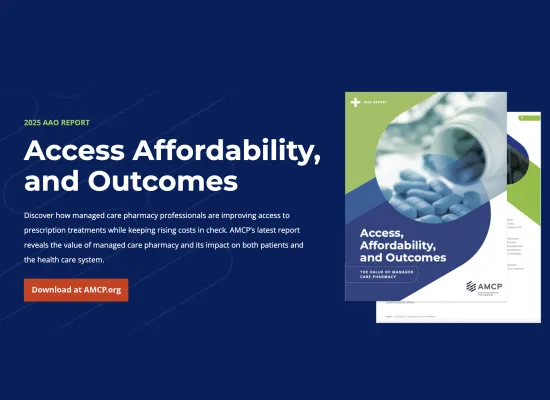
JMCP Research Highlight: Discrepancies Between FDA-Required Labeling and Evidence that Payers Cite in Drug Coverage Policies
Alexandria, Va., Dec. 4, 2018 — When making specialty drug coverage decisions, payers often consider information that goes beyond what’s contained in the Food and Drug Administration (FDA)-required labeling, according to a study in the current issue of the Journal for Managed Care & Specialty Pharmacy (JMCP).
Drug labels are designed to provide summaries that give prescribers important information needed to prescribe the product. While relevant, this information is insufficient to meet the needs of payers in making coverage determinations, according to the article. As such, payers often report reviewing clinical studies and evidence that was produced but not included in the label.
The article, “Discrepancies Between FDA-Required Labeling and Evidence that Payers Cite in Drug Coverage Policies,” was authored by James D. Chambers, MPharm, MSc, PhD; Elle F. Pope, BA, MPH; Colby L. Wilkinson , BA; and Peter J. Neumann , ScD, all with the Center for the Evaluation of Value and Risk in Health, Tufts Medical Center in Boston.
The study examined coverage policies for five pharmaceutical products at large health plans across the country. For each drug, researchers identified endpoints included in clinical studies presented in the FDA-required labeling. Researchers also identified endpoints in randomized controlled trials (RCTs) and other clinical studies — not included on the label — that at least one payer cited in its coverage policies for the observed drugs.
Across the studies that payers reported reviewing in their coverage decisions, 89% of information was identical or similar to information included in the FDA-required labeling. However, the study also indicates that 11% of the information differed from information included in the FDA-required labeling.
Payers have no legal limitations constraining the type of information they may consider when making coverage determinations. However, the FDA has maintained that certain data that are not derived from pivotal clinical trials do not constitute “substantial evidence,” and therefore may misbrand a product. As such, manufacturers may feel limited in their ability to provide payers with the type of evidence that payers consider useful in making decisions. In turn, payers may not always have ready access to the types of evidence that they consider useful to inform coverage determinations.
“Our findings suggest that the FDA should continue engaging with the manufacturer and payer communities to appropriately facilitate communication of information necessary to allow for informed coverage decisions,” the article concludes.
Read “Discrepancies Between FDA-Required Labeling and Evidence that Payers Cite in Drug Coverage Policies” in the December 2018 issue of JMCP at http://bit.ly/2FO1603.
About JMCP
The Journal of Managed Care & Specialty Pharmacy publishes peer-reviewed original research manuscripts, subject reviews, and other content intended to advance the use of the scientific method, including the interpretation of research findings in managed care pharmacy. It is dedicated to improving the quality of patient care by providing its readers with the results of scientific investigation and evaluation of clinical, health, service, and economic outcomes of pharmacy services and pharmaceutical interventions, including formulary management. www.jmcp.org.
Featured News & Resources
See Full CalendarAI Pre-Conference Program
AMCP Southwest Day of Education
Upcoming Events
AMCP offers a wide variety of educational opportunities, from events and webinars to online training.







